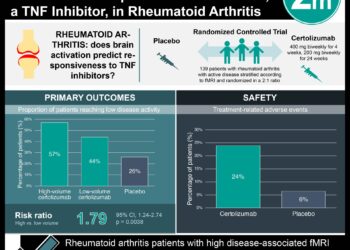2 Minute Medicine Rewind July 10, 2017
Clostridium difficile infection (CDI) is the most common healthcare-associated infection, contributing to a significant amount of morbidity and mortality. Unlike most other infections, CDI often recurs in up to 50% of patients after an initial episode. In this retrospective cohort study, 38,911,718 patients were followed up to determine whether the incidence of multiply recurrent CDI (mrCDI) is increasing in proportion to CDI and to identify risk factors for mrCDI. This study was performed using a health informatics database, which contains information on an insured population from a diverse group of health plans in the US. Researchers found that over the study period, 45,341 patients had at least 1 episode of CDI, of whom 1,669 went on to have mrCDI. Of these 1,669 patients with mrCDI, 1,523 experienced recurrence in the context of the first known episode. The annual incidence of CDI increased by 42.7% between 2001 and 2012 (p=0.004). The annual incidence of mrCDI increased by 188.8% over the same time period (p<0.001). Based on the subcohort of patients with a first known diagnosis of CDI, the odds of developing mrCDI increased by approximately 8% per year, taking into account potential confounders (OR 1.08, 95% CI 1.06 to 1.09). Compared to patients who did not develop mrCDI, affected patients were more likely to be older (OR per 10-year increase in age 1.25, 95% CI 1.21 to 1.29) and female (OR 1.24, 95% CI 1.11 to 1.38). The use of antibiotics other than those used to treat CDI (OR 1.79, 95% CI 1.59 to 2.01), proton pump inhibitors (PPIs) (OR 1.14, 95% CI 1.01 to 1.29), and corticosteroids (OR 1.15, 95% CI 1.00 to 1.32) within 90 days prior to diagnosis were also associated with the development of mrCDI. With respect to certain chronic diseases, chronic kidney disease (OR 1.49, 95% CI 1.24 to 1.80) was found to be associated with an increased risk of mrCDI, while inflammatory bowel disease and diabetes mellitus were not. Diagnosis of CDI in a nursing home was also associated with the development of mrCDI (OR 1.99, 95% CI 1.34 to 2.93). This study therefore shows that compared to CDI, the incidence of mrCDI has increased significantly, with a number of modifiable risk factors increasing the odds of developing mrCDI such as the use of certain medications, chronic kidney disease and residence in a nursing home.
Nursing home (NH) residents account for an increasing number of hospitalizations and emergency department (ED) visits, and are at an increased risk of re-admission within 30 days after discharge. The Interventions to Reduce Acute Care Transfers (INTERACT) program includes a set of tools addressing key factors known to contribute to avoidable hospital admissions and ED visits among NH residents. In this cluster-randomized clinical trial, 85 NHs were randomized to receive training and support for implementing INTERACT or none, to determine whether this quality improvement program reduces hospital admissions and ED visits. As part of the training and support for implementing INTERACT, the study team provided tools that help NH staff identify and evaluate acute changes in NH resident condition and document communication between physicians, care paths to avoid hospitalization when safe and feasible, and advance care planning and quality improvement tools. Researchers found that intervention NHs exhibited no significant reduction in overall hospital admissions relative to control NHs (-0.13 hospitalizations per 1000 resident-days, 95% CI -0.36 to 0.10, p=0.25). Researchers did, however, find a reduction in potentially avoidable hospitalizations (-0.18 hospitalizations per 1000 resident-days, 95% CI -0.31 to -0.04, p=0.01), representing a near 15% reduction in hospitalizations relative to the pre-intervention rate among intervention NHs. There were no differences in readmission rates and ED visits without hospital admissions. This finding, however, was not robust to a Bonferroni correction for multiple comparisons. This study therefore shows that training and support for INTERACT implementation had no effect on hospitalization or ED visit rates for NH residents.
Multitasking and silent electronic health record use in ambulatory visits
Clinicians may use electronic health records (EHRs) in silence or while multitasking and talking with patients. Concurrent multitasking, however, is associated with an increased risk of error and time to complete tasks. In this observational study, time allocation and transitions into and out of silent EHR use in clinics was studied in 5 primary and specialty safety-net clinics transitioning from basic to fully-functional EHRs. This analysis included data on 25 clinicians and 25 patients after a fully-functional EHR was implemented. Researchers found that multitasking EHR use comprised 30.5% of visit time, silent EHR 4.6%, multi-tasking non-EHR tasks 4.3% and focused patient-clinician talk 33.1%. Patients rated care as “excellent” after 66.7% of low-multitasking EHR and 76.5% of high-multitasking EHR visits (p=0.65). This study therefore shows that clinicians mostly multitasked with EHRs, with most patients not reporting dissatisfaction in their interactions with these clinicians.
Declining risk of sudden death in heart failure
Many patients with heart failure and reduced ejection fraction (EF) experience sudden death. This is often the result of ventricular arrhythmia. The risk of this occurring can be reduced with the insertion of an implantable cardioverter-defibrillator (ICD) in patients with New York Heart Association (NYHA) functional class II or III symptoms and a left EF or 35% or less. ICDs, however, are costly and not without complications of their own after implantation. In addition, with the increasing use of evidence-based medications, the rate of sudden death may have decreased over time. As a result, ICDs may not lead to significant reductions in mortality when used in conjunction with appropriate medical therapy. In this study, researchers analyzed data from 40,195 patients with heart failure and reduced EF that had been enrolled in 12 randomized controlled trials conducted between 1995 and 2014 to examine rates of sudden death in this patient population. Researchers found that the annual rate of sudden death fell over time from 6.5% in the earliest trial to 3.3% in the most recent trial (p=0.02). The rate of sudden death was lower in the experimental therapy groups than in the control groups for all of the trials included in this study. There was a decline in the risk of sudden death of 44% over 19 years (HR 0.56, 95% CI 0.33 to 0.93, p=0.03). While this reduction in risk over time was attenuated with further adjustment for baseline covariates (HR 0.90, 95% CI 0.61 to 1.32, p=0.60), patients randomized to an experimental group continued to be at a decreased risk of sudden death over time (HR 0.86, 95% CI 0.81 to 0.92, p<0.001). The rate of sudden death was not higher among patients with a recent diagnosis of heart failure than among those with a longer-standing diagnosis. This study therefore shows that rates of sudden death in patients with heart failure and reduced EF have decreased substantially over time.
Association of same-day discharge with hospital readmission after appendectomy in pediatric patients
Appendectomy is the most common abdominal surgery performed in pediatric patients in the US. In adults, there has been a push towards same-day discharge (SDD) after several common surgical operations, including laparoscopic appendectomy for acute, non-perforated appendicitis. In this retrospective cohort study, the American College of Surgeons of National Surgical Quality Improvement Program (NSQIP) pediatric database was used to evaluate 30-day readmission rates among 22,771 pediatric patients who underwent an appendectomy for acute, non-perforated appendicitis. Researchers found that 22.2% of these patients had SDD. Compared to patients that were discharged within 2 days, there was no difference in the odds of readmission (OR 0.82, 95% CI 0.51 to 1.04, p=0.06). There was also no significant difference in the reasons for readmission, and no difference in wound complication rates between patients with SDD and those discharged 1 or 2 days after surgery (OR 0.75, 95% CI 0.56 to 1.01, p=0.06). This study therefore shows that SDD may be a safe and efficient measure in the provision of surgical care for pediatric patients with acute, non-perforated appendicitis.
Image: PD
©2017 2 Minute Medicine, Inc. All rights reserved. No works may be reproduced without expressed written consent from 2 Minute Medicine, Inc. Inquire about licensing here. No article should be construed as medical advice and is not intended as such by the authors or by 2 Minute Medicine, Inc.







